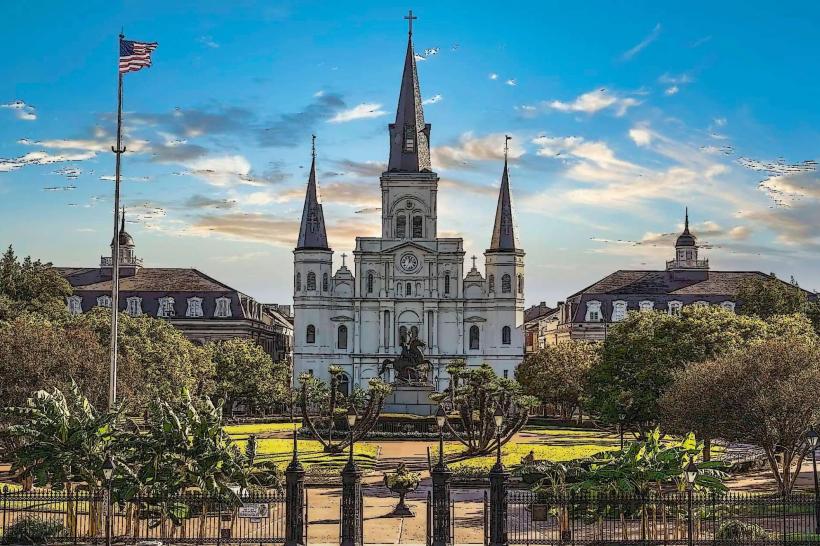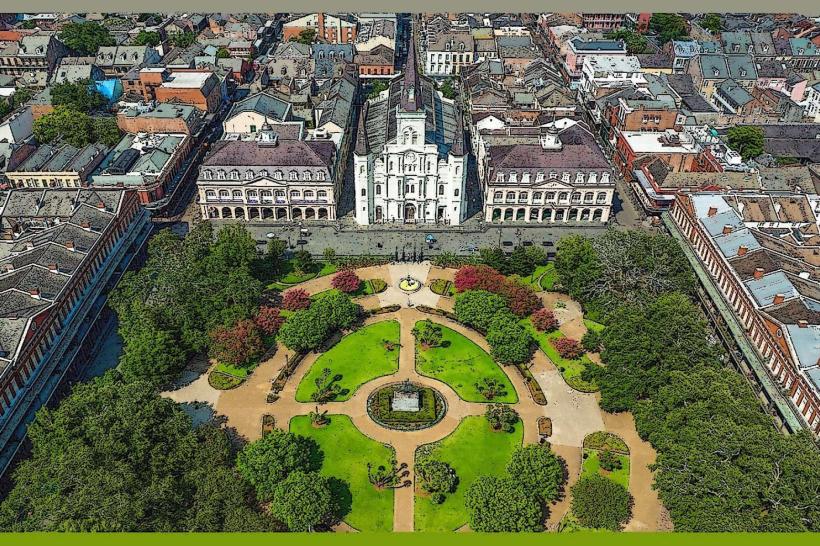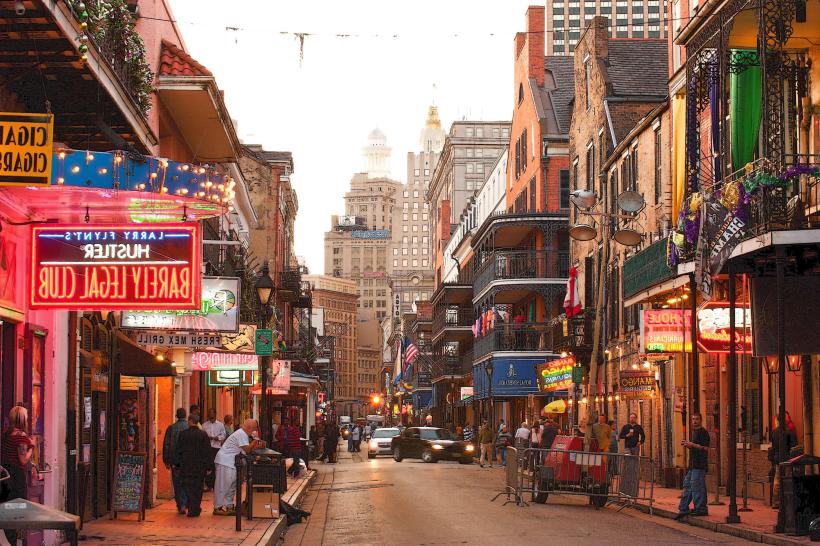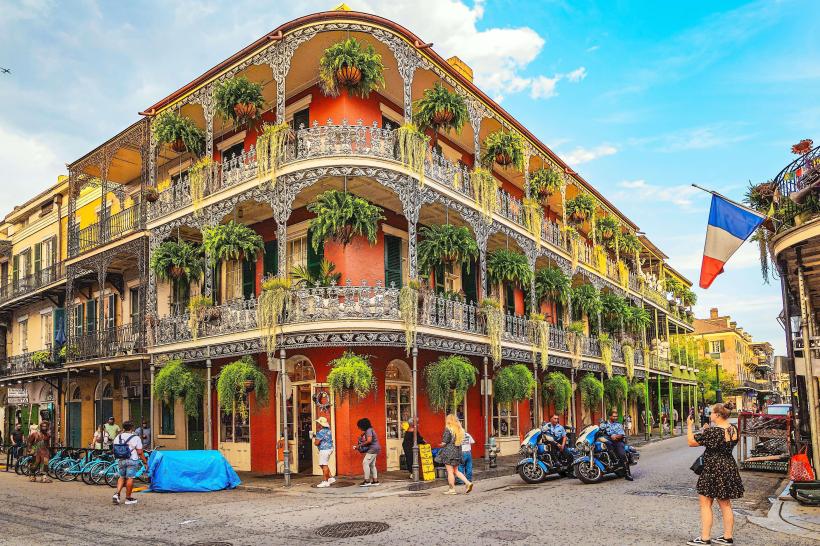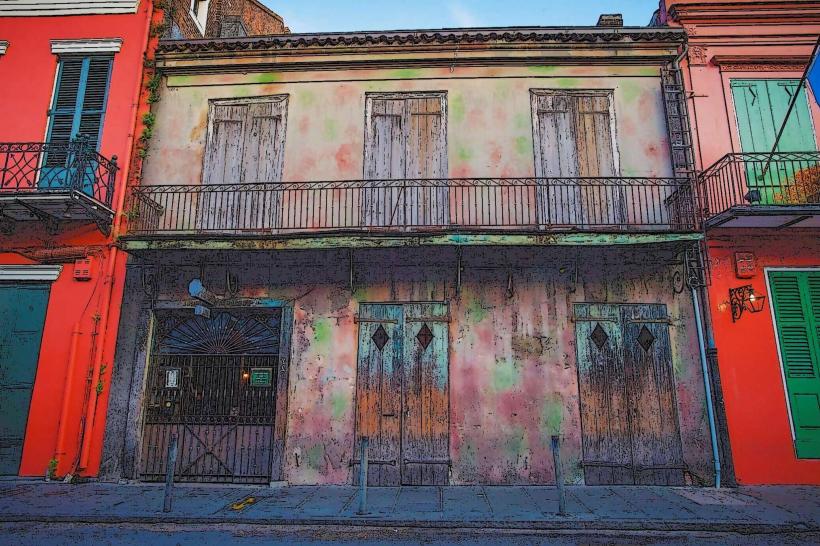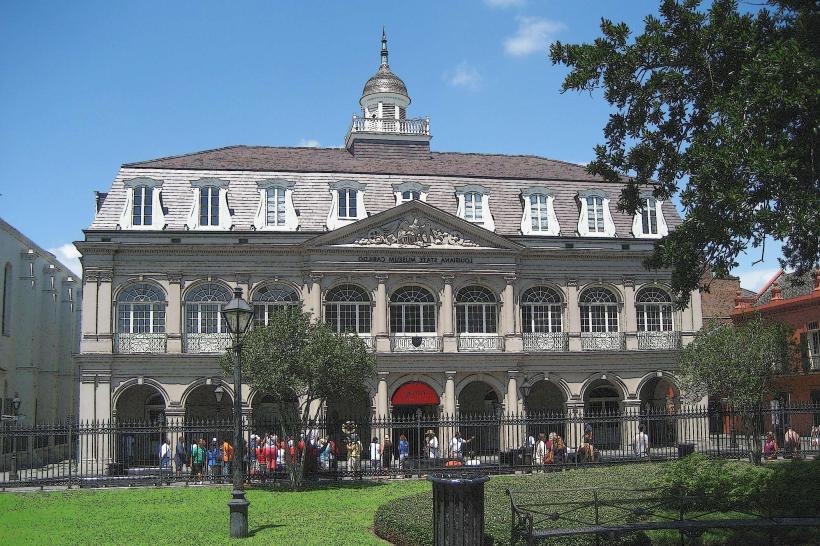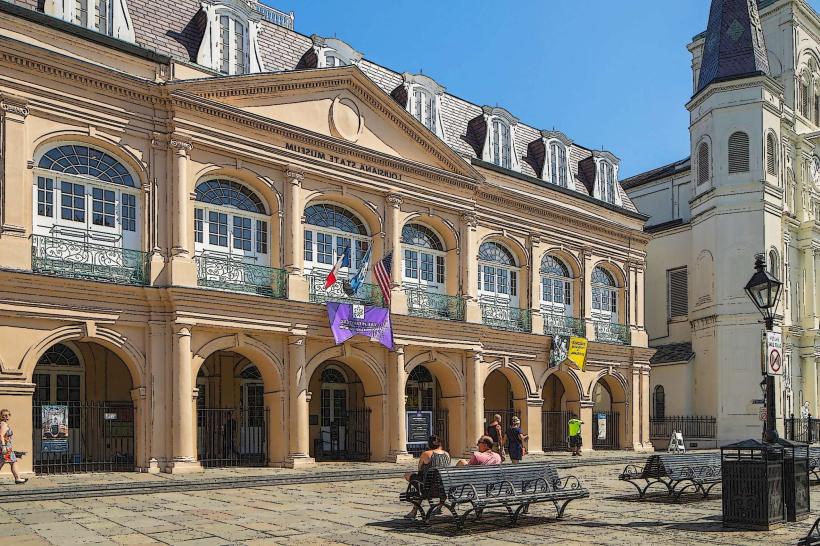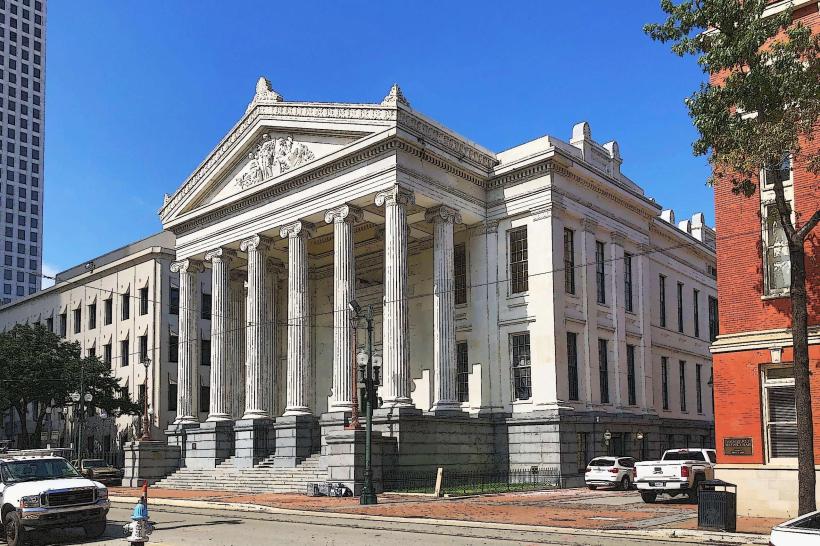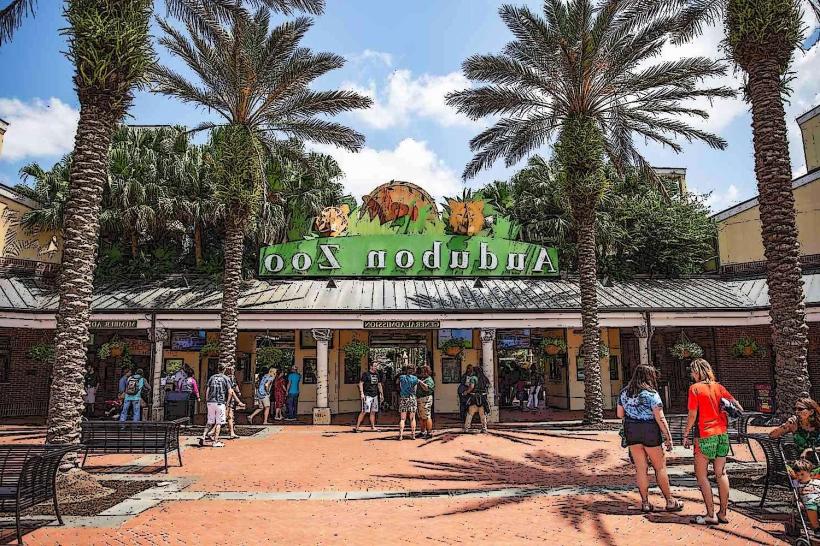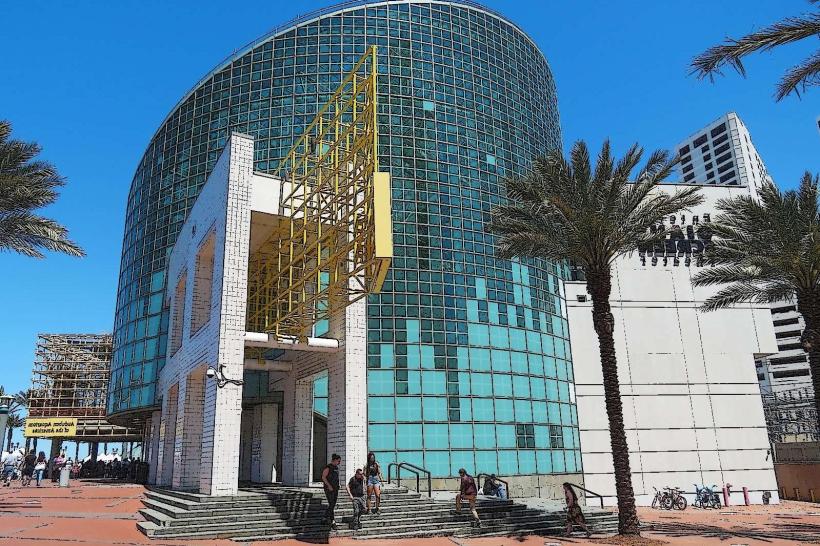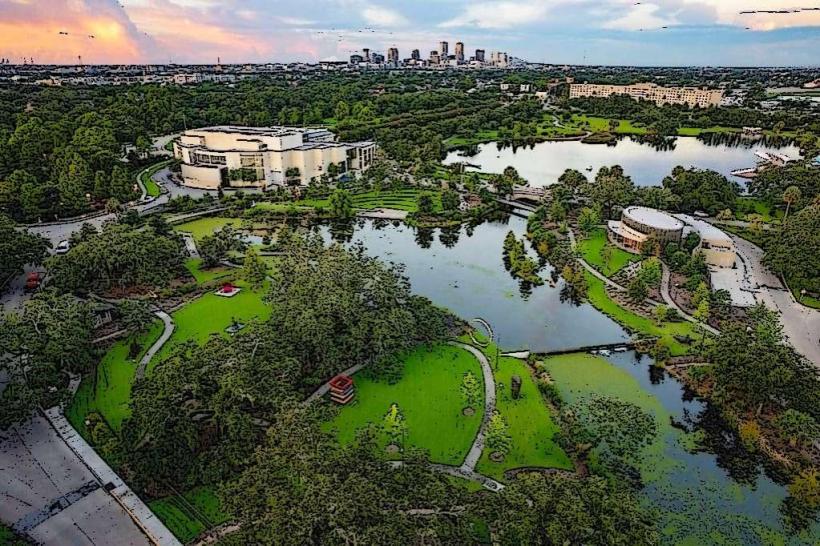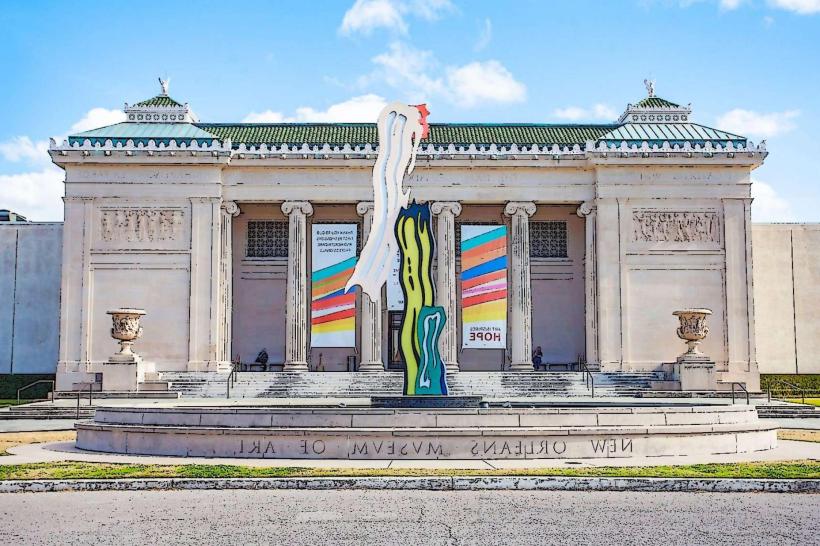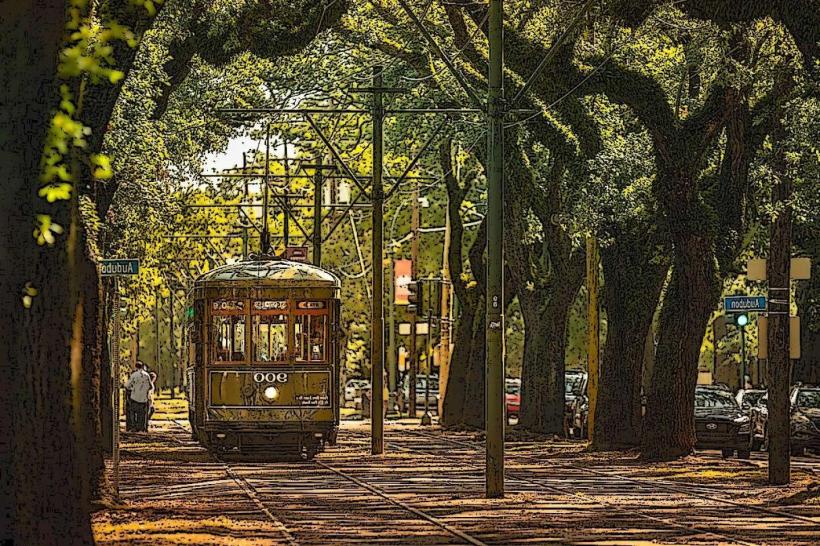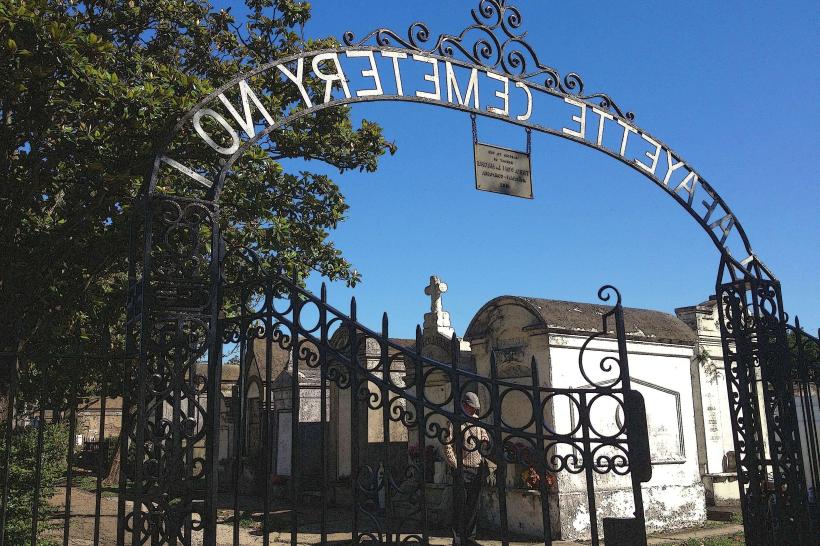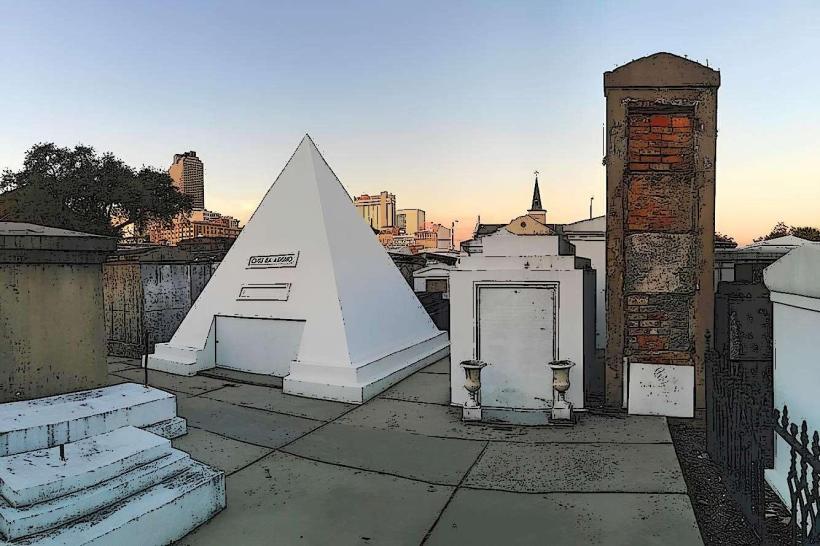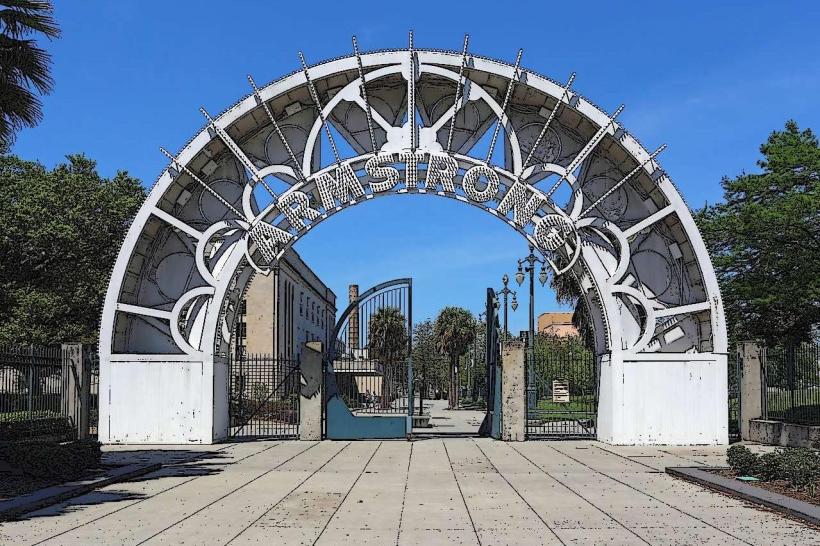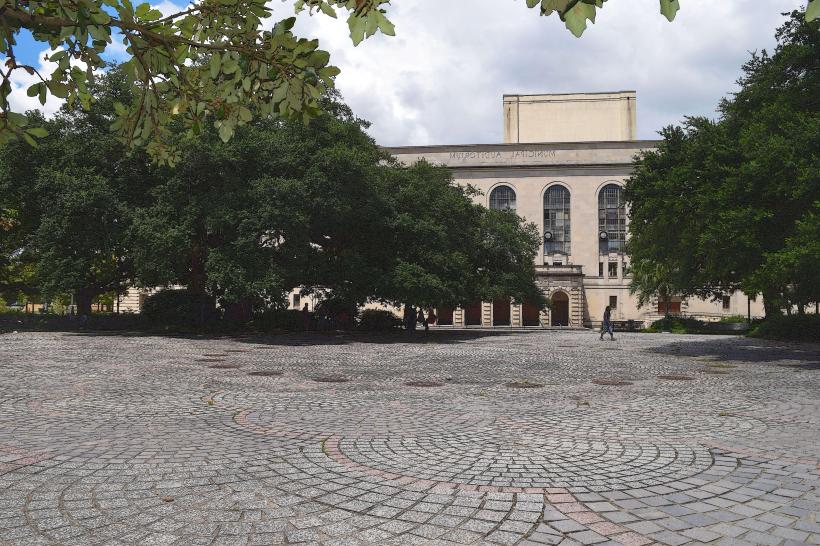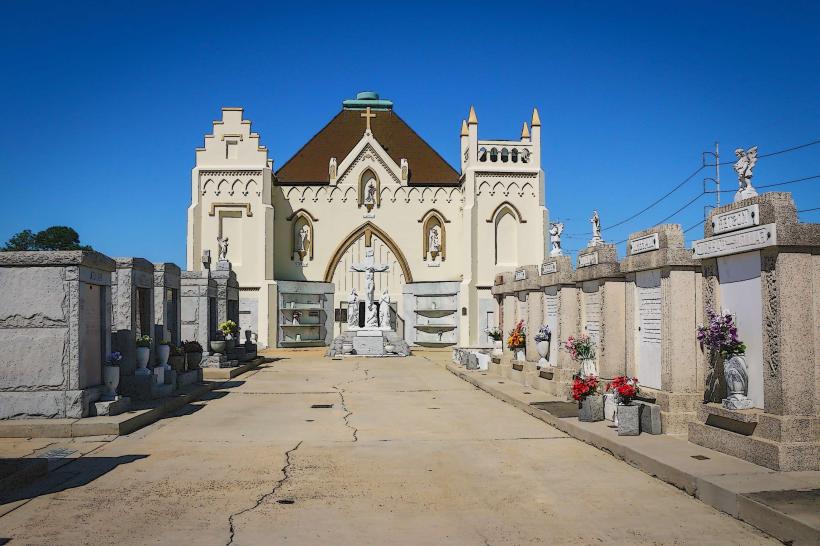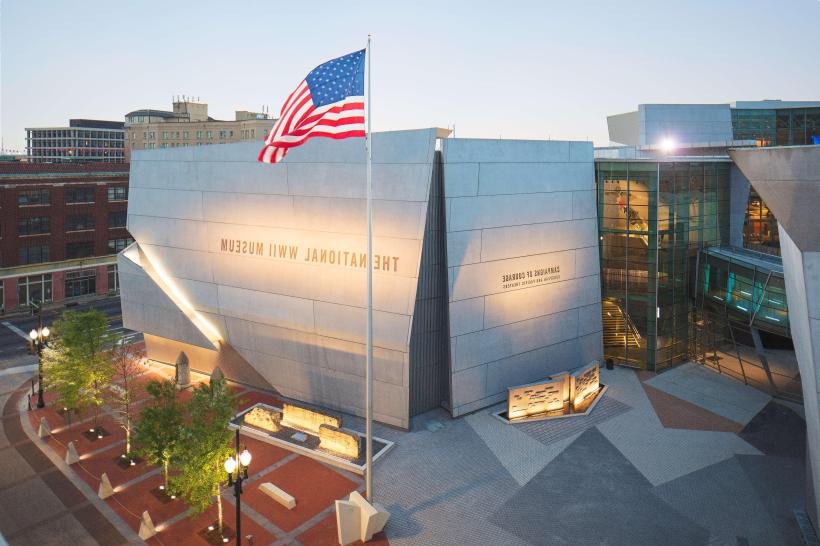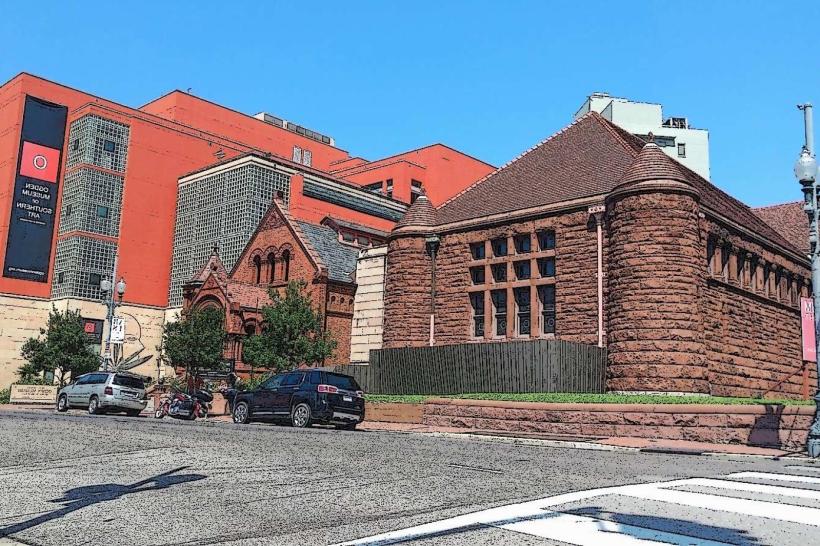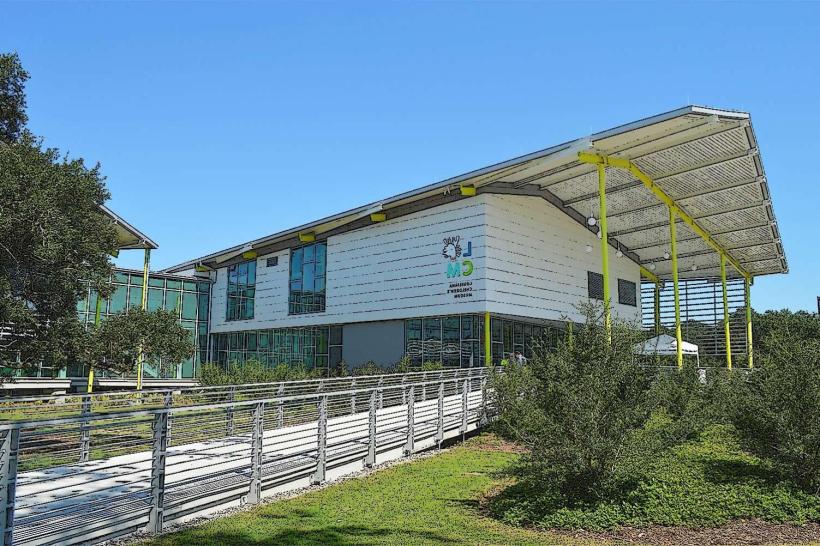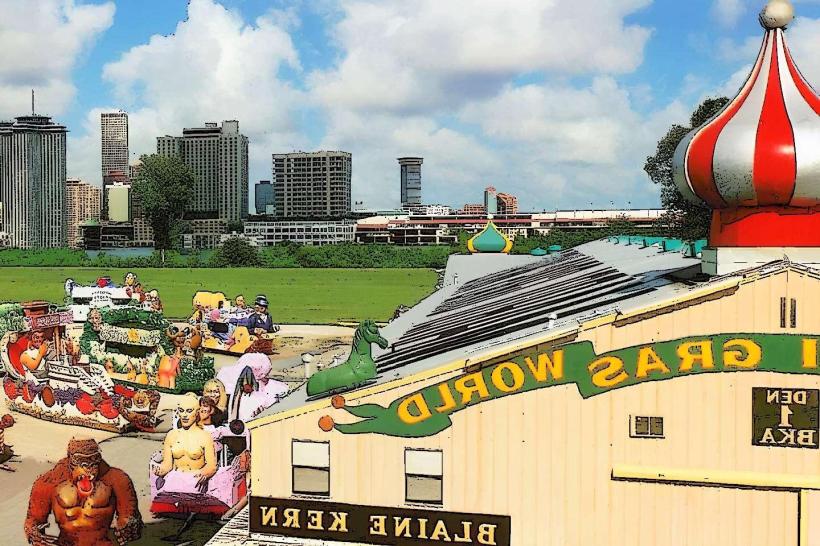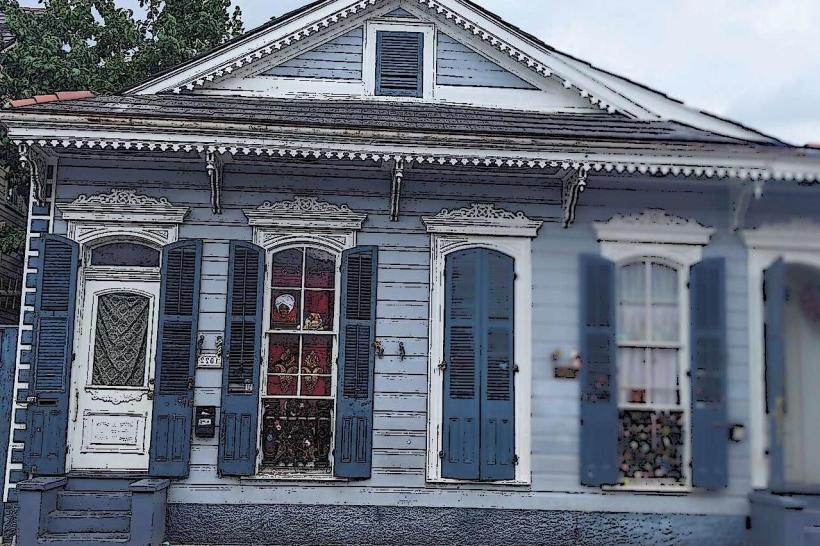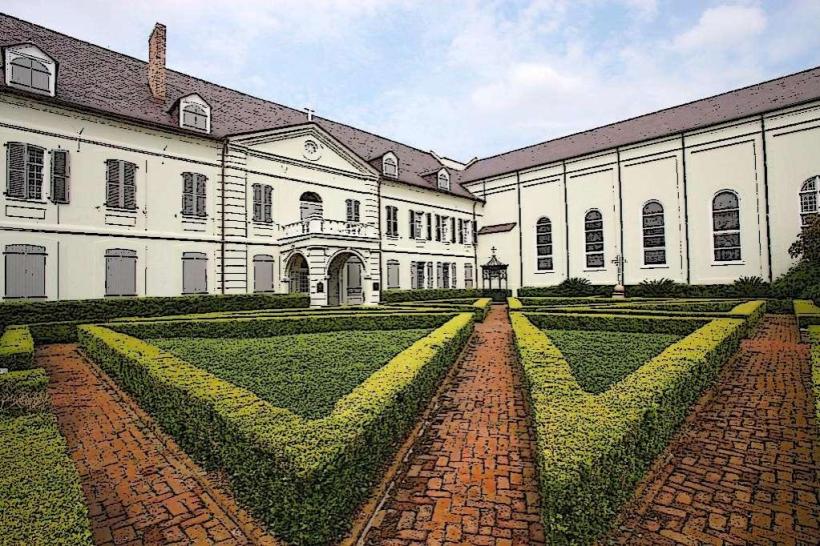Information
Landmark: Louisiana State MuseumCity: New Orleans
Country: USA Louisiana
Continent: North America
Louisiana State Museum, New Orleans, USA Louisiana, North America
The Louisiana State Museum (LSM) is a network of museums and historic sites that collectively celebrate the rich history, culture, and heritage of Louisiana. With multiple locations across the state, the Louisiana State Museum offers visitors a deep dive into the diverse and complex past of Louisiana, from its Indigenous roots and colonial beginnings to its role in shaping the modern United States. The museum system is particularly focused on the unique aspects of Louisiana’s history, including its French, Spanish, and African influences, as well as the impact of music, politics, and natural disasters on the state’s identity.
Overview and Locations
The Louisiana State Museum system is composed of several key locations, each offering a distinct experience centered around different aspects of Louisiana’s heritage. Some of the most notable museums and historic sites within the Louisiana State Museum include:
1. The Cabildo (New Orleans)
Located in Jackson Square, the Cabildo is one of the most iconic buildings in New Orleans and one of the primary museums of the Louisiana State Museum. The building itself is historically significant, having served as the site of the Louisiana Purchase in 1803 when France transferred the Louisiana Territory to the United States. The museum's exhibits cover a range of topics, including the Louisiana Purchase, New Orleans' colonial history, and the Civil War, as well as the development of Louisiana's cultural identity.
2. The Old U.S. Mint (New Orleans)
Situated next to the French Quarter, the Old U.S. Mint was once a U.S. mint for coin production and later served as a Confederate Mint during the Civil War. Today, it is a museum under the Louisiana State Museum system that explores New Orleans' rich history, including its role in coinage production, the Civil War, and the emergence of jazz as a defining genre of American music. It also houses a collection of artifacts from the life of Louis Armstrong, one of jazz’s most influential musicians.
3. The Louisiana State Museum at The Presbytère (New Orleans)
Located on Jackson Square, directly across from the Cabildo, the Presbytère is another key part of the Louisiana State Museum. The building was originally constructed as a Catholic church and later became a museum. Its exhibits focus on Louisiana’s Mardi Gras traditions and the history of Hurricane Katrina, with immersive displays documenting the storm’s impact on New Orleans and the resilient response of its people.
4. The New Orleans Pharmacy Museum (New Orleans)
This unique museum focuses on the history of pharmacy and medicine in New Orleans and the broader region. Located in the French Quarter, it showcases the evolution of pharmaceutical practices, including the use of herbal remedies, early medicines, and medical tools. The museum is housed in a historic building that once functioned as a pharmacy and offers visitors a glimpse into the fascinating history of healthcare in the city.
5. The Louisiana State Museum – Jean Lafitte National Historical Park and Preserve (Various Locations)
This expansive preserve is dedicated to preserving and interpreting the cultural and natural heritage of the area surrounding the Jean Lafitte National Historical Park. The museum highlights Louisiana’s natural ecosystems, including the bayous, swamps, and wetlands. It also covers Native American history, French colonialism, and the state's distinctive Cajun and Creole cultures.
6. The Capitol Park Museum (Baton Rouge)
Located in the state capital, Baton Rouge, the Capitol Park Museum offers a more statewide view of Louisiana’s history. It covers the state’s early settlement, political milestones, and cultural evolution. Highlights include exhibits on Louisiana’s diverse populations, including African Americans, Cajuns, and Creoles, and how these groups have contributed to Louisiana’s rich cultural heritage. The museum also features exhibits on the development of the oil industry and civil rights, which have played significant roles in shaping Louisiana’s economy and society.
Key Exhibits and Collections
The Louisiana State Museum features an extensive array of exhibits that explore the many facets of Louisiana's history and culture. Key themes and highlights include:
1. Louisiana’s Colonial History
Exhibits throughout the various museums explore the colonial roots of Louisiana, including the influence of French, Spanish, and African cultures on the state. The Cabildo and Presbytère museums delve deeply into Louisiana's history under French and Spanish rule, highlighting the cultural fusion that took place and the eventual transition to U.S. control with the Louisiana Purchase.
2. Mardi Gras and Carnival Traditions
Louisiana is famous for its Mardi Gras celebrations, and the Louisiana State Museum offers visitors a look into the colorful and vibrant history of the festival. The Presbytère features a dedicated exhibit on Mardi Gras that covers its history, the king cakes, parades, and the masquerades that are central to this iconic cultural event. The museum also explores the role of Mardi Gras Indians and other cultural groups that contribute to the festivities.
3. The Civil War and Reconstruction
Louisiana played a key role in the Civil War, and several museums within the Louisiana State Museum system examine the impact of the war on the state, as well as the post-war Reconstruction period. Exhibits at the Cabildo and Old U.S. Mint delve into New Orleans’ significance as a strategic port city and the role it played during the war, as well as the long-lasting effects of Reconstruction on Louisiana’s political and social fabric.
4. Jazz and Music History
New Orleans is the birthplace of jazz, and the Louisiana State Museum offers several exhibits that celebrate the city’s role in shaping this genre of music. The Old U.S. Mint is home to the Louis Armstrong Exhibit, which highlights the life and career of the legendary musician. Other exhibits explore the rise of jazz, blues, R&B, and the Cajun and Zydeco music traditions that have shaped Louisiana’s musical landscape.
5. Hurricane Katrina and Resilience
The devastation caused by Hurricane Katrina in 2005 is an integral part of modern New Orleans history, and the Louisiana State Museum offers powerful exhibits documenting the storm’s impact. The Presbytère hosts a moving exhibit on the storm’s aftermath, the challenges of rebuilding New Orleans, and the resilience of its residents. This exhibit provides a sobering and heartfelt look at the storm’s destruction and the community’s recovery.
6. Native American and African American Heritage
Exhibits at the Louisiana State Museum also highlight the contributions of Native Americans and African Americans to Louisiana's identity. The Capitol Park Museum and other locations explore the history of enslaved people, the Cajun and Creole cultures, and the significant role of African Americans in the civil rights movement. These exhibits emphasize Louisiana’s cultural diversity and the contributions of different groups to the state’s heritage.
Visitor Experience
The Louisiana State Museum provides an immersive experience for visitors through its educational programming, exhibitions, and events. Many museums in the system offer guided tours, lectures, and special events that delve into specific aspects of Louisiana’s history, such as its indigenous cultures, the legacy of the Civil War, or the evolution of jazz music.
Conclusion
The Louisiana State Museum system is one of the most comprehensive collections of historical and cultural sites in the United States. Its museums and exhibits provide a deep and rich understanding of Louisiana’s diverse history and the significant roles the state has played in shaping the cultural and political landscape of the country. Whether you're interested in Colonial history, Mardi Gras traditions, jazz, or the legacy of Hurricane Katrina, the Louisiana State Museum offers something for everyone. It is a must-visit for anyone wanting to explore the vibrant and multifaceted heritage of Louisiana.

